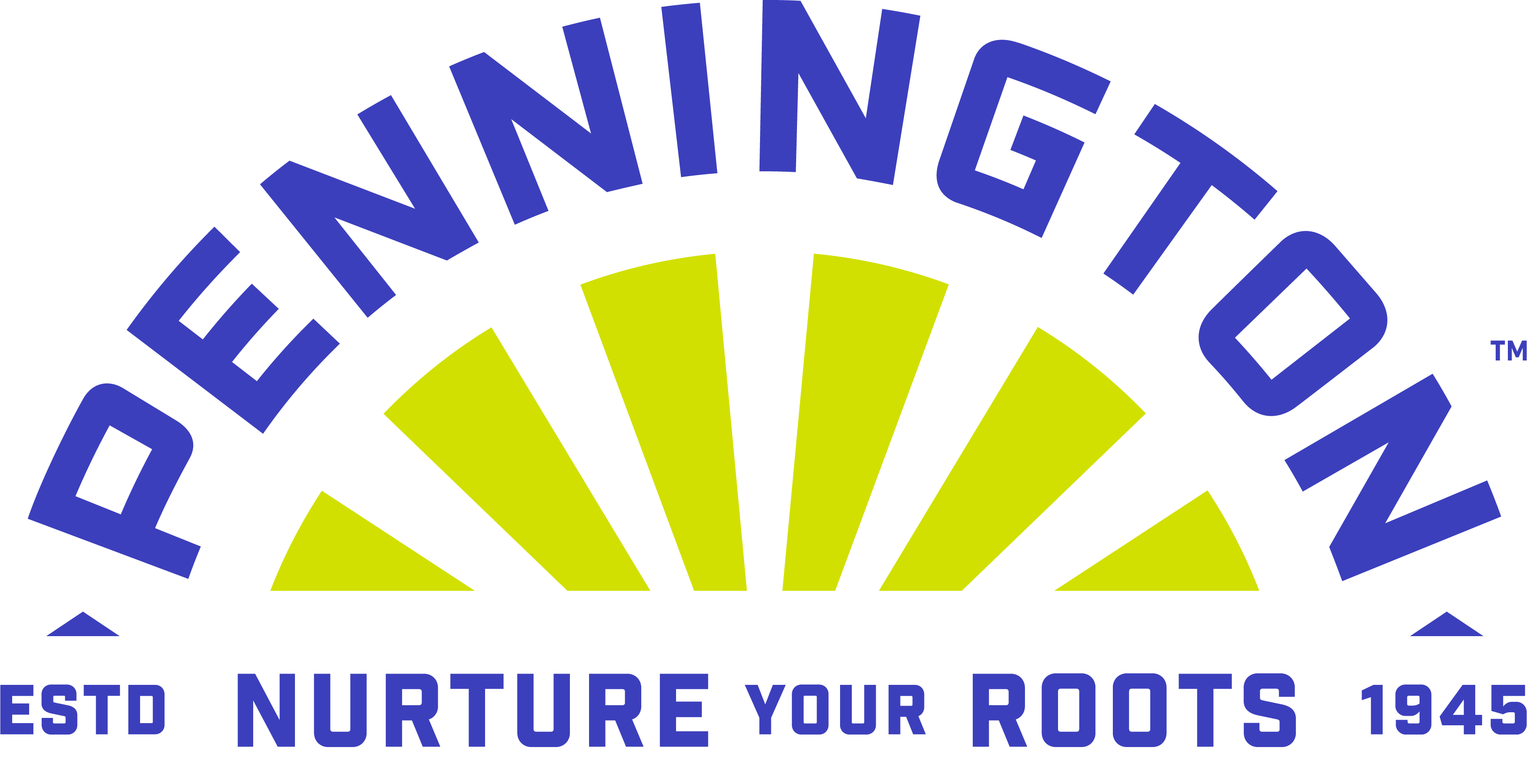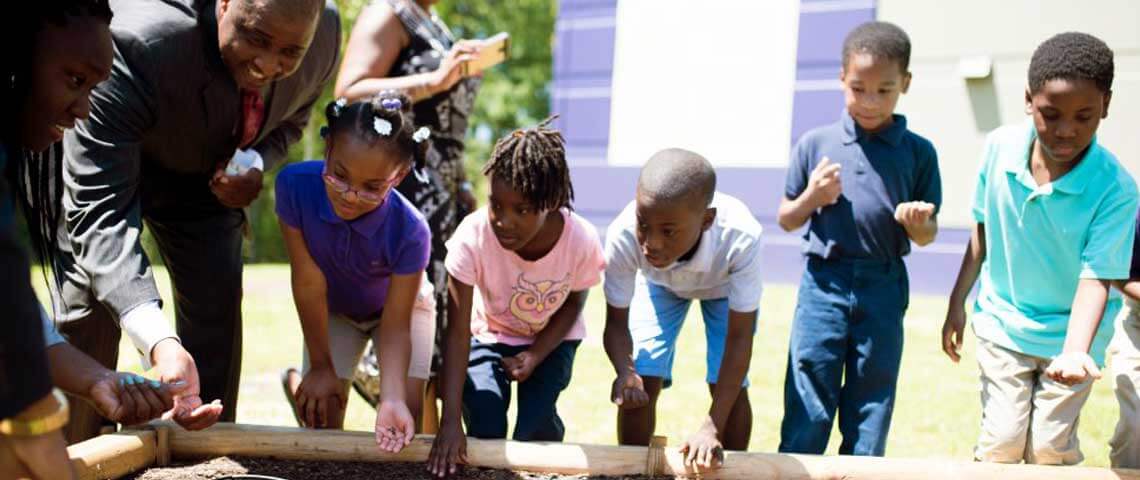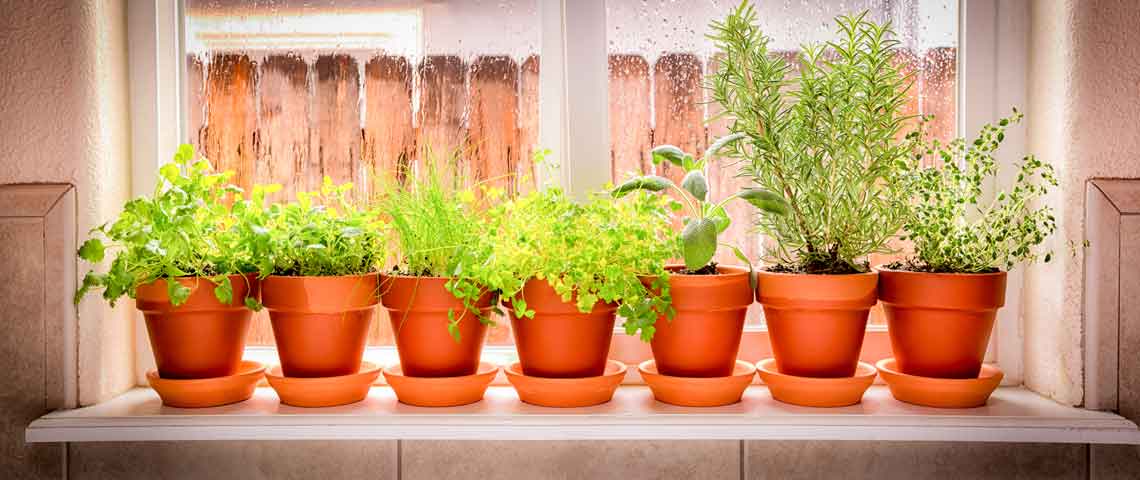The Many Benefits of Starting a School Garden
School gardens can make lasting differences in the lives of children. The lessons taught through these outdoor learning laboratories transcend gardening to impact children, their families and entire communities for years to come. Here are some of the many ways school gardens make a difference:
Academic Achievement
Traditional classroom activities often involve passive learning as children read aloud and listen to their teachers. But activities in an outdoor garden classroom bring abstract concepts to life through active, hands-on learning. School garden programs use typical gardening tasks, such as planning, planting, caring and harvesting, to illustrate cultivation. Plants, insects, birds and weather all become participants in the learning process. As a result, children are more engaged, more attentive and more motivated to learn.
While school gardens encourage creativity, stricter disciplines benefit, too. Research shows that students who participate in garden-based science curriculum, in addition to traditional classroom learning, score significantly higher on science achievement tests than students in a traditional classroom-based control group. This garden-enhanced achievement benefits both boy and girls equally.1

Environmental Stewardship
Many children raised outside rural settings have never seen seeds sprout or vegetables develop. For some, eating or even seeing fresh produce is rare. Through schools gardens, children experience the rewards of fresh produce and the process that brings them to pass. They learn to understand the natural growth of plants — from seeds to sprouts to flowers to fruits — and the impact that rain, drought and other forces of nature have on plant life. Children learn firsthand the connection between nature, their own food supply, and the pollinators and other creatures their school garden ecosystem attracts and supports.
This newfound connectedness to nature fosters respect and concern for the environment as a whole. Students who participate in hands-on garden classroom programs develop greater concern and awareness of resource conservation and allocation than students who do not. Student garden participants also express more positive outlooks on nature, gardening and environmental issues.2 The strongest responses result from involvement with active gardening.3

Social and Community Skills
By their nature, schools gardens encourage teamwork, individual responsibility and a commitment to success. In much the same way team sports foster pride in student athletes, school gardens strengthen bonds between school gardeners, schools and communities. Many gardens involve community volunteers, who assist students as they plant, tend and learn. Increased interaction between children, teachers and volunteers encourages growth in interpersonal and cooperative skills that follow children throughout their lives.
Students who participate in school garden programs show significant improvements in self-understanding and cooperation to achieve group goals.4 Student participants demonstrate increased self-esteem and an improved understanding of personal responsibility, as well as enhanced relationships and increased involvement with parents and other family members.5 For children with learning disabilities, school garden involvement has been shown to enhance nonverbal communication skills, attitudes toward order, and participation in cooperative tasks.6

Healthy Lifestyle Habits
Many children lead sedentary lifestyles and have a limited understanding of the links between exercise, nutrition and lifelong health. While traditional classroom learning involves little physical activity, gardening is filled with movement. Children (and teachers and volunteers) stand, walk, kneel and stretch as they tend to their plants, and they're often so absorbed in tasks that gardening's physical and therapeutic benefits are nowhere in mind. Even so, this increased physical activity overflows to children's lives outside of school.7
School gardening affects eating habits, too. Research shows that children are significantly more likely to eat vegetables they have grown. Schools often incorporate garden harvests into lunch programs, so students benefit from the added nutritional value of school-grown produce. Many garden programs also include nutritional education, shown to improve attitudes toward vegetables in general. Children become more likely to eat vegetables, even as snacks, and to ask family members to buy vegetables for them. These healthy habits continue into adulthood.8
School gardens and the lessons they teach can improve the lives of children from all backgrounds in many ways. This positive impact flows outward to the people and communities that school gardeners will touch throughout their lives. The makers of Alaska brand fertilizer are proud to partner with Cornell Lab of Ornithology to provide educational resources and garden grant opportunities to support and encourage school gardens, school gardeners and educators, as we work to build community across the nation.

Alaska is a registered trademark of Central Garden & Pet Company.
Sources:
1. Klemmer, C.D., Waliczek, T.M. and Zajicek. J.M., “Growing Minds: The Effect of a School Gardening Program on the Science Achievement of Elementary Students," HortTechnology, July-September 2005, pgs. 448-452.
2. Skelly, S.M. and Zajicek, J.M., “The Effect of an Interdisciplinary Garden Program on the Environmental Attitudes of Elementary School Students," HortTechnology, October-December 1998, pgs. 579-583.
3. Lohr, V.I. and Pearson-Mims, C.H., “Children's Active and Passive Interactions with Plants Influence Their Attitudes and Actions toward Trees and Gardening as Adults," HortTechnology, July-September 2005, pgs. 472-476.
4. Robinson, C.W. and Zajicek, J.M., “Growing Minds: The Effects of a One-Year School Garden Program on Six Constructs of Life Skills of Elementary School Children," HortTechnology, July-September 2005, pgs. 453-457.
5. Alexander, J. and Hendren, D., “Bexar County Master Gardener Classroom Garden Research Project: Final Report," Texas A&M AgriLife Extension, 1998.
6. Sarver, M., “Agritherapy: Plants as Learning Partners," Academic Therapy, March 1985, pgs. 389-396.
7. Boscia, T., “School Gardens Grow Kids' Physical Activity Levels," Cornell University Chronicle, March 2014.
8. Morris, J.L., Briggs, M. and Zidenberg-Cherr, S., “Development and Evaluation of a Garden-Enhanced Nutrition Education Curriculum for Elementary Schoolchildren," The Journal of Child Nutrition & Management, Spring 2002.





